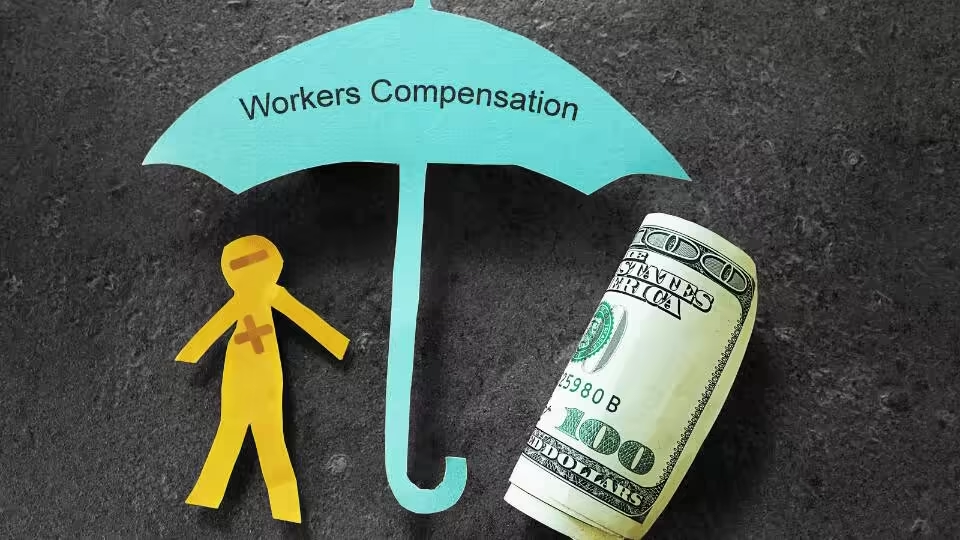Small business insurance workers' compensation is a type of insurance that protects businesses from the financial costs of work-related injuries and illnesses. According to Insureon, it covers medical expenses, lost wages, and death benefits for employees who are injured or become ill on the job.
Small businesses are essential to the economy because they promote growth and create jobs. These businesses, according to Investopedia, have inherent risks, so it's critical for owners to safeguard their enterprise and personnel. Small business insurance workers' compensation is essential in this situation because it protects against potential financial hardships brought on by workplace injuries and illnesses.
According to New York Times, 40% of small business owners don't have any insurance. Additionally, in a recent study by Insurance Journal, 75% of American companies are under-insured. But in a recent poll by Insureon, 26% of small businesses lack workers' compensation coverage which could leave them open to liability. Many small businesses lack the insurance necessary to cover their expenses in the event of a catastrophe or legal action.
Related: Workers' Compensation Insurance: Everything You Need To Know
How does Small business
insurance workers' compensation work
Workers' compensation works by guaranteeing coverage for workplace accidents and preventing employees from suing their employers. According to Nerdwallet, the procedure is the same in all states, regardless of the policy. If an employee is injured, they have a certain amount of time to notify their employer. As stated by Insurance Information Institute (III), the employer then files a workers' compensation claim with their insurance company to secure benefits for the employee.
Related: Employee Benefits Packages for Small Businesses
What expenses does workers' compensation cover for small businesses?
The specific benefits an employee receives through workers' compensation depend on the nature and severity of their injury. These benefits are influenced by the state's requirements and the employer's policy, as indicated by the International Labour Organization.
Reviewing the policy and the state's regulations is important to understand the coverage provided. If a small business operates in multiple states, the workers' compensation policy must meet each state's requirements.
In general, a workers' compensation policy for small businesses covers the following expenses for an injured employee:
1. Immediate medical care
The costs associated with injury treatment include doctor visits, surgeries, medications, and possibly medical equipment like wheelchairs.
Related: Employee Health Insurance for Small Businesses: What you need to know
2. Rehabilitation
If the employee requires an extended recovery period, workers' compensation benefits often cover physical therapy and other necessary therapies.
In cases where the employee cannot return to work due to the long-term effects of the injury, some workers' comp policies may provide vocational rehabilitation to help the employee train for a new career.
3. Disability and lost wages
- This benefit helps compensate for some of the employee's lost wages if they cannot work.
It applies to both partial and total disability and temporary and permanent disability. This benefit is separate from Social Security
disability benefits.
4. Survivor benefits
If an employee dies due to a work-related injury, workers' compensation provides financial support to the employee's family.
This compensation aims to cover the loss of income and often includes coverage for certain funeral expenses.
Related: Workers' Compensation in Massachusetts
What is excluded from the coverage of small business insurance workers' compensation?
Workers' compensation may not always cover the cost of an employee's medical care. These circumstances include, as defined by SAMHSA,
for instance, when an employee:
When the injury occurred, they were under the influence of alcohol or illicit drugs.
Participating voluntarily in a wellness program or a recreational activity on the property.
Eating food, they prepared themselves for their meal.
Travelling for personal or professional reasons to or from the workplace.
Who requires small business insurance workers' compensation?
The need for workers' compensation insurance depends on the industry, number of employees, and company setup. Some companies, like those with only owner-employees, may be exempt. The best way to know if your company needs workers' compensation is to talk to an insurance agent.
However, it is still advisable to consider this coverage even if you qualify for an exemption or your state does not require it. Your business could be subject to lawsuits from hurt employees if you don't have workers' compensation insurance. Additionally, work-related injuries are generally excluded from coverage by the majority of personal health insurance plans.
Some businesses require contractors to have workers' compensation insurance to protect themselves from lawsuits. Workers' compensation insurance also protects your company if you hire subcontractors who are injured while working for you.
Related: What is Employer's Liability Insurance?
What is the cost of small businesses' insurance workers' compensation?
The National Academy of Social Insurance reports that for every $100 of payroll in 2018, workers' compensation premiums ranged from 70 cents to $2.25 per month.
The actual cost of workers' compensation insurance varies depending on several variables, including the type of work your employees do. Additionally, where your business is located, how many employees you have, and your history of claims.
Employers purchase workers' compensation insurance policies and pay monthly or yearly premiums, just like with other types of business insurance.
Although coverage may be obtained from a state agency rather than a private company in some states, most major insurance carriers provide workers' compensation coverage.
How can small businesses obtain workers' compensation coverage?
Major insurance companies frequently offer workers' compensation insurance, which is affordable for small businesses. You must provide information about your company and employees to be eligible for coverage. The states where your business operates will determine the coverage needed.
You may need to purchase your insurance directly from the state's office of workers' compensation in some states. For instance, business owners in Ohio submit an application and security deposit to the state Bureau of Workers' Compensation, which reviews the application and assigns a policy number.
If your state permits businesses to buy workers' compensation insurance, it is critical to become familiar with the rules established by your state. You should also research to find the best workers' compensation insurance provider for your business requirements.
The importance of small business insurance workers' compensation
Workers' compensation insurance is essential as it covers the costs associated with workplace accidents and illnesses. This coverage is crucial due to the high medical care expenses, as reported by the Occupational Safety and Health Administration (OSHA).
Firstly, they offer small businesses and their employees financial security in the event of unanticipated mishaps or injuries. Small businesses frequently lack the financial means to cover accident-related expenses. They may include medical bills, lost wages, and legal
costs. Workers' compensation insurance helps lessen the financial burden on the company and the injured employee by ensuring that
employees receive the right medical care and wage replacement.
Secondly, small business insurance workers' compensation supports the maintenance of a secure workplace. Businesses can reduce the likelihood of accidents and injuries by implementing safety procedures and risk management techniques. Insurance companies frequently provide information and advice on safe work practices, helping businesses make their workplaces safer.
Furthermore, having sufficient insurance protection enables small businesses to adhere to legal requirements. In many jurisdictions, companies larger than a certain size or with a certain number of employees must carry workers' compensation insurance. Significant
fines and other legal repercussions may result from violating these regulations.
Moreover, small business insurance workers' compensation improves a company's credibility and reputation. Insurance coverage is frequently viewed as a sign of professionalism and dependability by clients, customers, and potential business partners. It gives stakeholders confidence by showing that the company is ready to handle unexpected circumstances and protect its employees.
Related: 5 Things all Employers Should Understand About Workers' Compensation
Conclusion
Small business insurance workers' compensation is crucial for protecting businesses and employees. It provides financial security, promotes safety, ensures legal compliance, and enhances business credibility. Lack of coverage can lead to financial hardships and legal consequences. Understanding the benefits and obtaining proper coverage is essential for small businesses to safeguard their interests and workforce.



